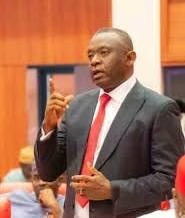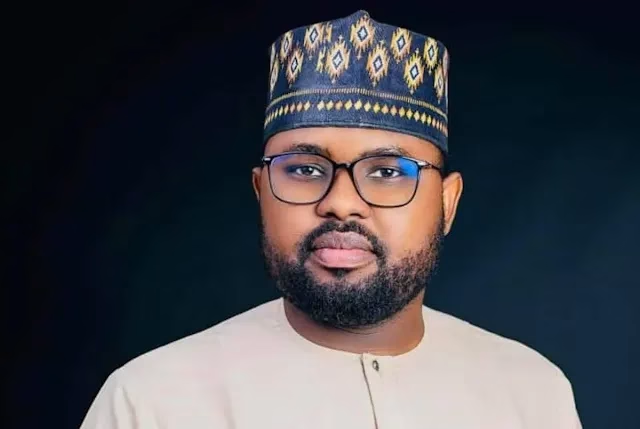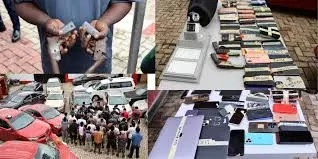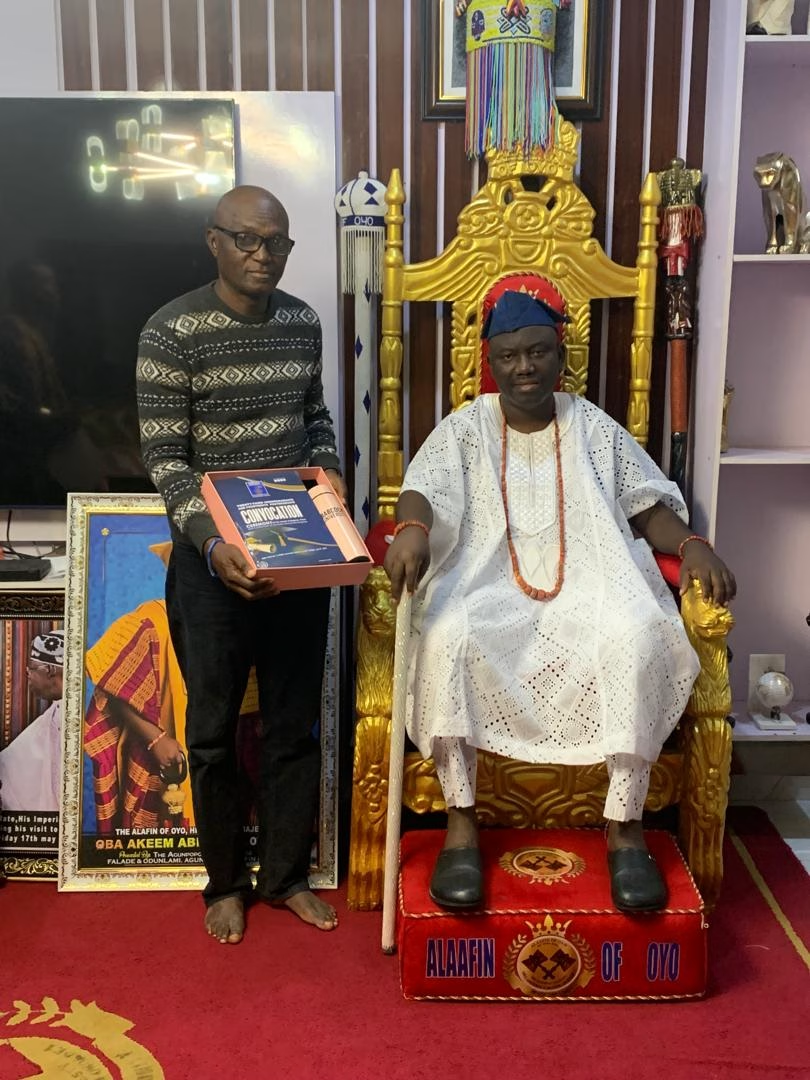FirstBank proudly sponsored the recently held Canada-Africa Fintech Summit (CAFS 2025), which took place from August 5–8 at the Sheraton Centre in Downtown Toronto. Convened by Dr. Segun Aina, President of the African Fintech Network, CAFS 2025 was a landmark event that united fintech leaders, regulators, startups, and investors from Africa and Canada to explore scalable digital solutions, encourage investment, and promote inclusive economic development across both continents.
As a legacy institution with over 131 years of leadership in financial services, FirstBank’s sponsorship highlights its commitment to fostering cross-border collaboration, financial inclusion, and forward-thinking innovation in the global fintech landscape. Olayinka Ijabiyi, Ag. Group Head, Marketing and Corporate Communications at FirstBank, stated, “Our support of CAFS 2025 reflects our belief that collaboration between African and Canadian fintech ecosystems can lead to transformative innovations. FirstBank is proud to help shape that future.”
During a high-level panel discussion with Rudy Cuzzeto, MPP for Mississauga–Lakeshore, and David Stevenson, Country Director for the United Nations World Food Programme (Nigeria), Chuma Ezirim, Group Executive for E-Business & Retail Products at FirstBank, stressed the significance of digital collaboration in Africa’s financial ecosystem. “We’re building APIs that understand regulatory bifurcation, who has access to what, and why. The technology is the easy part. The real challenge lies in maintaining security, consent, and performance,” he explained. “In Nigeria, fintech has evolved beyond disruption to convergence, integrating banks, fintechs, and regulators into an agile and accountable ecosystem.” He further emphasized that regulatory clarity is essential for building public trust and attracting private investment in fintech, stating, “The more we collaborate, the more lessons we learn, and the greater the benefits for consumers.”
In a separate panel discussion, Rachel Adeshina, Chief Technology Officer at FirstBank, shared insights on harnessing AI to enhance credit access for the underbanked. “We’re addressing data poverty by using AI to interpret alternative data, allowing us to lend to individuals who might otherwise be invisible to the traditional credit system,” she noted. Adeshina highlighted that FirstBank has disbursed over ₦1 trillion in digital loans through this AI-driven model, achieving a remarkable repayment rate of over 99%. “This innovation was enabled not only by technology but also by a supportive environment, including API banking regulations, data privacy laws, and a shift from account-based to wallet-based banking,” she added. She also underscored the importance of scalability through collaboration, stating, “In a fragmented continent like Africa, digital scale will come from interoperability. Connecting the 54 markets is the next big challenge, and fintechs are ideally positioned to lead that initiative.”
The summit formed part of Canada’s broader Africa Strategy, aimed at fostering economic partnerships, digital cooperation, and innovation exchange. As Africa’s digital finance ecosystem continues to grow and Canada develops its own open banking framework, events like CAFS 2025 provide a timely platform to align strategies and ignite collaborations.
About FirstBank
First Bank of Nigeria Limited “FirstBank”, established in 1894, is the premier bank in West Africa, a leading financial inclusion services provider in Africa, and a digital banking giant.
FirstBank’s international footprints cut across three continents ─ Africa, Europe and Asia, with FirstBank UK Limited in London and Paris; FirstBank in The Democratic Republic of Congo, Ghana, The Gambia, Guinea and Sierra Leone; FBNBank in Senegal; and a FirstBank Representative Office in Beijing, China. All the subsidiary banks are fully registered by their respective Central Banks to provide full banking services.
Besides providing domestic banking services, the subsidiaries also engage in international cross-border transactions with FirstBank’s non-Nigerian subsidiaries, and the representative offices in Paris and China facilitate trade flows from Asia and Europe into Nigeria and other African countries.
For over 13 decades, FirstBank has built an outstanding reputation for solid relationships, good corporate governance, and a strong liquidity position, and has been at the forefront of promoting digital payment in the country with over 13 million cards issued to customers (the first bank to achieve such a milestone in Nigeria). FirstBank has continued to make significant investments in technology, innovation and transformation, and its cashless transaction drive has been steadily accentuated with virtually over 25 million active FirstBank customers signed up on digital channels including the USSD Quick Banking service through the nationally renowned *894# Banking code.
With over 43 million customer accounts (including digital wallets) spread across Nigeria, UK and sub-Saharan Africa, the Bank provides a comprehensive range of retail and wholesale financial services through more than 820 business offices and over 280,000 agent locations spread across 772 out of the 774 Local Government Areas in Nigeria.
In addition to banking solutions and services, FirstBank provides pension fund custody services in Nigeria through First Pension Custodian Nigeria Limited and nominee and associated services through First Nominees Nigeria Limited.
FirstBank’s commitment to Diversity is shown in its policies, partnerships and initiatives such as its employees’ ratio of female to male (about 41%:59%; and 37% women in management roles) as well as the FirstBank Women Network, an initiative that seeks to address the gender gap and increase the participation of women at all levels within the organisation. In addition, the Bank’s membership of the UN Women is an affirmation of a deliberate policy that is consistent with UN Women’s Women Empowerment’s Principles (WEPs) ─ Equal Opportunity, Inclusion, and Nondiscrimination.
For six consecutive years (2011 – 2016), FirstBank was named “Most Valuable Bank Brand in Nigeria” by the globally renowned The Banker Magazine of the Financial Times Group and “Best Retail Bank in Nigeria” eight times in a row, 2011 – 2018, by the Asian Banker International Excellence in Retail Financial Services Awards.
Significantly, FirstBank’s Global Credit Rating was A+ with a positive outlook while ratings by Fitch and Standard & Poor’s were A (nga) and ngBBB+ respectively both with Stable outlooks as at September 2023. FirstBank maintained the same level of international credit ratings as the sovereign; a milestone that was achieved in 2022 for the first time since 2015.
In 2024, FirstBank received notable international awards and accolades. Some of these include Nigeria’s Best Bank for ESG 2024 and Nigeria’s Best Bank for Corporates 2024 both awarded by Euromoney Awards for Excellence; Best SME Bank in Africa and in Nigeria by The Asian Banker Global Awards; Best Private Bank in Nigeria and Best Private Bank for Sustainable Investing in Africa by Global Finance Awards; Best Corporate Bank in Nigeria 2024, Best CSR Bank in Nigeria 2024, Best Retail Bank in Nigeria 2024, Best SME Bank in Nigeria 2024 and Best Private Bank in Nigeria 2024 all awarded by the Global Banking and Finance Awards.
FirstBank has continued to gain wide acclaim on the global stage with several international awards and recognitions received so far in 2025 which includes Best SME Bank in Nigeria 2025 and Best SME Bank in Africa 2025 by The Asian Banker; Best Private Bank in Nigeria 2025 and Best Private Bank for Sustainable Investing in Africa 2025 by Global Finance Awards; SME Financier of the Year in Nigeria 2025 by The Digital Banker Global SME Banking Innovation Awards; Best Retail Bank in Nigeria 2025 and Best Bank for Empowering Women Entrepreneurs in Nigeria 2025 all by The Annual Global Economics Awards.
Our vision is “To be Africa’s Bank of first choice” and our mission is “To remain true to our name by providing the best financial services possible”. This commitment is anchored on our core values of EPIC – Entrepreneurship, Professionalism, Innovation and Customer-Centricity. Our strategic ambition is “To deliver accelerated growth in profitability through customer-led innovation and disciplined execution.”




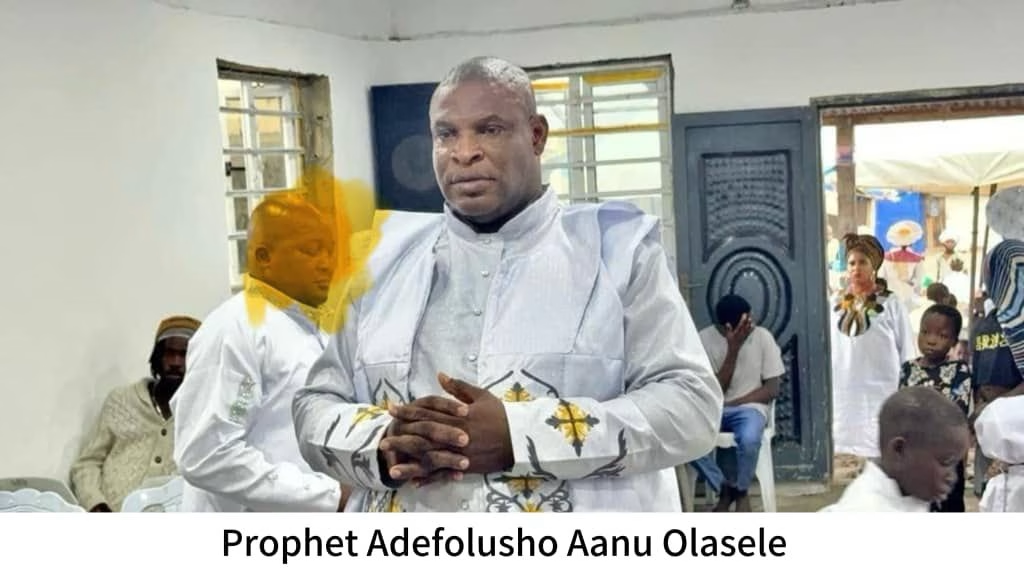

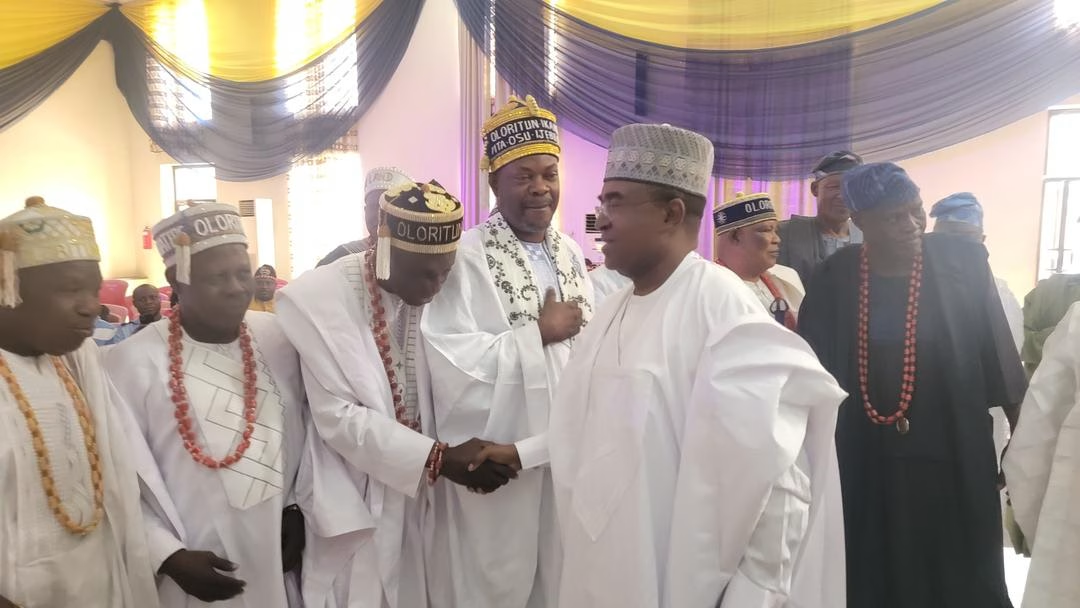
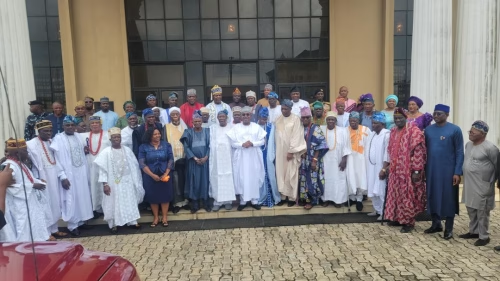 According to the NDLEA boss, “It is projected that the number of people using drugs will increase by 40% in Africa. When they say Africa, I want us to think of Nigeria, because Nigeria has one of the highest drug use prevalences in the world.”
He however said that despite the projection by the United Nations Office on Drugs and Crime (UNODC), all hope is not lost. “As a nation and as communities, we still possess the power to reverse this trend”, he assured.
“The first step is collective responsibility. Parents, religious institutions, traditional rulers, educational authorities and community leaders must rise with one voice against these vices. The family unit must be strengthened as the first point of moral instruction, while schools should be safe spaces that promote discipline, mentorship and awareness.
“We must also invest in youth development by creating opportunities for education, entrepreneurship, skills acquisition and sports. Idle hands, as we know, are the devil’s workshop. When our young people find purpose and meaning, they are less likely to seek false validation from cults or drugs”, Marwa stated.
Dwelling on how the NDLEA is responding to the challenge, Marwa said “we have intensified our war against drug trafficking and abuse.Nationwide raids have led to significant seizures and arrests, which we share weekly on our official channels.
“In the past 54 months, we have arrested 67, 345 traffickers, including 95 barons, and 12, 415 of them are presently serving various jail terms. The barons we have arrested are not anonymous people in society. They include big business people and socialites—some of them have chieftaincy titles—and also government officials, including those tasked with maintaining law and order. That tells how deeply the rot had eaten into the fabric of our society.
“Within the period, we have seized more than 11.2 million kilograms of assorted illicit drugs and destroyed 1,572 hectares of cannabis farms mostly in Southwest States where some people are cultivating cannabis on a large scale, utilising land that should have been used for other cash crops for illicit crops.
“We are also scaling up our Drug Demand Reduction programmes, including school outreaches, community sensitisation and rehabilitation initiatives. We have within the same period conducted 11,584 sensitisatioin lectures in schools, work places, woship centres, motor parks, palaces of traditional rulers and communities, while 27, 187 drug users have been treated and rehabilitated through our 30 rehab facilities across the country in addition to thousands of others who have benefitted from the psychosocial support services provided on our tollfree helpline: 080010203040.”
While challenging other stakeholders, he said “we cannot do it alone. We need communities like Ijebu-Ode to partner with us, to speak up, to report suspicious activities and to support our advocacy drives.
“Moreover, security architecture must be enhanced at the grassroots level. Local vigilante groups, properly trained and coordinated, can serve as the eyes and ears of the community, working closely with law enforcement agencies to disrupt cult gatherings and prevent violent incidents.
“We must rekindle the moral and spiritual fabric of our society. We must remind our youth that there is dignity in labour, pride in learning and honour in integrity. The path to greatness is not paved with shortcuts of violence and drugs, but with hard work, vision and purpose.”
He commended the Council of Oloritun for organizing the seminar and the choice of the theme. “Your commitment to community and youth development is clear, and I encourage other councils across Nigeria to emulate this initiative. Let us rise as one people to rescue our children, secure our streets and restore the values that once defined our land”, he added.
In his welcome address, Chairman of the Council, Chief Adebisi Adeola Alausa commended Marwa for accepting the Council’s invitation. “Your presence today reflects our shared commitment to safeguarding the future of our community and our nation. We are gathered here not merely as individuals, but as a united front, as traditional leaders, government officials, parents, educators, and most importantly, our youths, to confront challenges that threaten the very fabric of our society. The issues we address today, the drug abuse, cultism, and banditry, are not distant problems”
Chairman of the occasion, Senator Lekan Mustapha describe different approaches Marwa as a visionary leader based on his past records of performance as military governor of Borno and Lagos as well as his transformation of NDLEA into reckoning both locally and internationally. “That you honoured our invitation shows your passion for the job, the safety and protection of our youths from drug and other vices”, he added.
Marwa seized the opportunity of his presence in Ijebu Ode to pay the family of the late Awujale of Ijebu land, Oba Sikiru Adetona, a condolence visit
According to the NDLEA boss, “It is projected that the number of people using drugs will increase by 40% in Africa. When they say Africa, I want us to think of Nigeria, because Nigeria has one of the highest drug use prevalences in the world.”
He however said that despite the projection by the United Nations Office on Drugs and Crime (UNODC), all hope is not lost. “As a nation and as communities, we still possess the power to reverse this trend”, he assured.
“The first step is collective responsibility. Parents, religious institutions, traditional rulers, educational authorities and community leaders must rise with one voice against these vices. The family unit must be strengthened as the first point of moral instruction, while schools should be safe spaces that promote discipline, mentorship and awareness.
“We must also invest in youth development by creating opportunities for education, entrepreneurship, skills acquisition and sports. Idle hands, as we know, are the devil’s workshop. When our young people find purpose and meaning, they are less likely to seek false validation from cults or drugs”, Marwa stated.
Dwelling on how the NDLEA is responding to the challenge, Marwa said “we have intensified our war against drug trafficking and abuse.Nationwide raids have led to significant seizures and arrests, which we share weekly on our official channels.
“In the past 54 months, we have arrested 67, 345 traffickers, including 95 barons, and 12, 415 of them are presently serving various jail terms. The barons we have arrested are not anonymous people in society. They include big business people and socialites—some of them have chieftaincy titles—and also government officials, including those tasked with maintaining law and order. That tells how deeply the rot had eaten into the fabric of our society.
“Within the period, we have seized more than 11.2 million kilograms of assorted illicit drugs and destroyed 1,572 hectares of cannabis farms mostly in Southwest States where some people are cultivating cannabis on a large scale, utilising land that should have been used for other cash crops for illicit crops.
“We are also scaling up our Drug Demand Reduction programmes, including school outreaches, community sensitisation and rehabilitation initiatives. We have within the same period conducted 11,584 sensitisatioin lectures in schools, work places, woship centres, motor parks, palaces of traditional rulers and communities, while 27, 187 drug users have been treated and rehabilitated through our 30 rehab facilities across the country in addition to thousands of others who have benefitted from the psychosocial support services provided on our tollfree helpline: 080010203040.”
While challenging other stakeholders, he said “we cannot do it alone. We need communities like Ijebu-Ode to partner with us, to speak up, to report suspicious activities and to support our advocacy drives.
“Moreover, security architecture must be enhanced at the grassroots level. Local vigilante groups, properly trained and coordinated, can serve as the eyes and ears of the community, working closely with law enforcement agencies to disrupt cult gatherings and prevent violent incidents.
“We must rekindle the moral and spiritual fabric of our society. We must remind our youth that there is dignity in labour, pride in learning and honour in integrity. The path to greatness is not paved with shortcuts of violence and drugs, but with hard work, vision and purpose.”
He commended the Council of Oloritun for organizing the seminar and the choice of the theme. “Your commitment to community and youth development is clear, and I encourage other councils across Nigeria to emulate this initiative. Let us rise as one people to rescue our children, secure our streets and restore the values that once defined our land”, he added.
In his welcome address, Chairman of the Council, Chief Adebisi Adeola Alausa commended Marwa for accepting the Council’s invitation. “Your presence today reflects our shared commitment to safeguarding the future of our community and our nation. We are gathered here not merely as individuals, but as a united front, as traditional leaders, government officials, parents, educators, and most importantly, our youths, to confront challenges that threaten the very fabric of our society. The issues we address today, the drug abuse, cultism, and banditry, are not distant problems”
Chairman of the occasion, Senator Lekan Mustapha describe different approaches Marwa as a visionary leader based on his past records of performance as military governor of Borno and Lagos as well as his transformation of NDLEA into reckoning both locally and internationally. “That you honoured our invitation shows your passion for the job, the safety and protection of our youths from drug and other vices”, he added.
Marwa seized the opportunity of his presence in Ijebu Ode to pay the family of the late Awujale of Ijebu land, Oba Sikiru Adetona, a condolence visit 